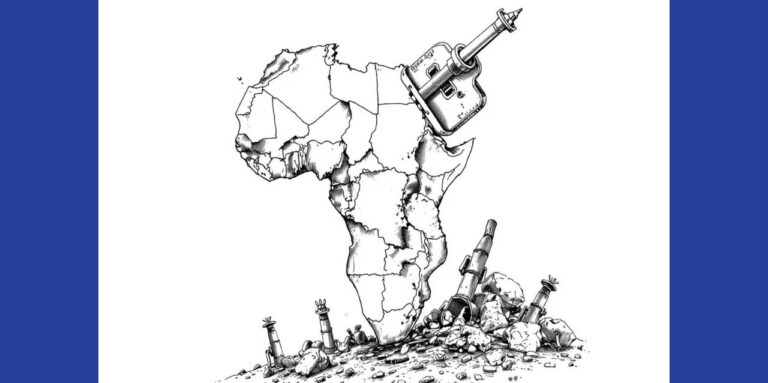Join hands to walk on the road of modernization
New development in China, sharing opportunities with Ethiopia
After the closing of the sessions of the National People’s Congress and the Chinese People’s Political Consultative Conference, General Secretary Xi Jinping visited Guizhou and Yunnan. In the ancient town of Lijiang, Yunnan, Xi Jinping walked along the stone road and had cordial exchanges with local residents and tourists along the way. “General Secretary, can I buy you a cup of coffee?” General Secretary Xi Jinping replied cordially: “Yunnan coffee is in a good position to represent China.”
Yunnan has fertile soil, abundant sunshine, and rich rainfall. The excellent geographical and climatic conditions make it a treasure land for the growth of small-grain coffee. Small-grain coffee has a unique flavor of “thick but not bitter, fragrant but not strong, and slightly acidic”. Today, Yunnan’s coffee planting area and output are both the highest in China.
When talking about coffee, one will naturally think of Ethiopia, the birthplace of coffee in the world. The aromatic Ethiopian coffee and the long-standing coffee ceremony have become a unique cultural landscape and an indispensable experience for tourists visiting Ethiopia. Coffee planting started relatively late in China, but it is one of the fastest growing countries in the world in terms of coffee consumption. Chinese consumers are willing to try high-quality coffee from different origins and with different flavors. Ethiopian coffee is increasingly favored by Chinese consumers, and prospects for China-Ethiopia coffee cooperation are broad.
General Secretary Xi Jinping also visited the Yunnan flower market and asked to focus on the entire industry chain and work hard from the seed industry, planting and market ends to make this beautiful industry a happy industry that benefits the people. Ethiopia is the second largest flower producer and major flower exporter in Africa, and has accumulated rich experience in flower planting, processing and export. China’s flower industry is large in scale, with sufficient consumption potential, and mature technologies such as preservation and cold chain. I believe that with the joint efforts of both sides, flower industry is expected to become a new growth point for China-Ethiopia cooperation.
Coffee and flower are just a microcosm of China-Ethiopia practical cooperation. During the last 55 years since the establishment of diplomatic relations between China and Ethiopia, especially in recent years, the two sides have continuously expanded the scope of cooperation, innovated cooperation model, and improved the quality of cooperation. In particular, the joint construction of the “Belt and Road” has achieved fruitful results, which helped promote Ethiopia’s industrialization and modernization process, and benefited the two countries and peoples. Last September, General Secretary Xi Jinping proposed the 10 major partnership actions for China and Africa to jointly promote modernization at the Beijing Summit of the Forum on China-Africa Cooperation, which charted the course for China-Ethiopia cooperation. Since December last year, China has granted zero tariff treatment to 100% of tariff items of products from all the least developed countries that have established diplomatic relations with China, including Ethiopia, in order to boost the development of African industries, promote job growth and poverty reduction. This demonstrates China’s responsibility as a major country and its determination to promote inclusive economic globalization. Since the implementation of this preferential policy a few months ago, the speed at which Ethiopian high-quality products enter China has accelerated. The Chinese side will work together with the Ethiopian side to encourage enterprises from both sides to make good use of policies and channels such as the China-Africa Economic and Trade Expo, the China International Import Expo and other large-scale exhibitions and the “green channel” for agricultural products to China, so that more and better Ethiopian products can enter the Chinese market and more Chinese people can share the fruits of Ethiopia’s development.
This year, China’s National “Two Sessions” proposed to develop new quality productivity according to local conditions and accelerate the construction of a modern industrial system. New quality productivity represents the future direction of scientific and technological development and is also the only way for China and Ethiopia to achieve modernization. China will focus more on large-scale application demonstration actions of new technologies, new products, and new scenarios, continue to promote “artificial intelligence +”, vigorously develop intelligent networked new energy vehicles, artificial intelligence mobile phones and intelligent robots, and expand the large-scale application of 5G communication technology. In fact, China and Ethiopia have successfully explored cooperation in developing new productivity. For example, the Telebirr electronic payment platform developed by Ethio Telecom with the participation of Chinese companies has been widely used in daily consumption in Ethiopia. It is also adding functions such as transportation, takeout, and short plays. In fact, it has become Ethiopia’s “Alipay” and e-commerce platform. Chinese new energy vehicles can be seen everywhere on the streets of Addis Ababa. Whether it is traditional industries or emerging industries, or the large number of Chinese factories active in Ethiopian industrial parks, they are all working hard to open up better prospects for China-Ethiopia cooperation.
In 2025, China will continue to contribute one-third of global economic development with a growth target of about 5%. Against the backdrop of increasing uncertainty in the global economy, China will stabilize the uncertain world with certainty, further expand opening up and international cooperation, continue to advance the Chinese-style modernization process, and form a higher level of benign interaction through domestic and international dual circulation. I firmly believe that a peaceful, stable, developing and prosperous China will bring new and greater opportunities for Ethiopia’s economic and social development. China is willing to follow the three initiatives proposed by General Secretary Xi Jinping, namely, the Initiative to Support African Industrialization, China’s Plan to Help African Agricultural Modernization, and the China-Africa Talent Training Cooperation Plan, to further implement the outcomes of the Beijing Summit of the Forum on China-Africa Cooperation and walk together on the road to modernization.
Chen Hai is Ambassador Extraordinary and Plenipotentiary of the People’s Republic of China to the Federal Democratic Republic of Ethiopia
After the closing of the sessions of the National People’s Congress and the Chinese People’s Political Consultative Conference, General Secretary Xi Jinping visited Guizhou and Yunnan. In the ancient town of Lijiang, Yunnan, Xi Jinping walked along the stone road and had cordial exchanges with local residents and tourists along the way. “General Secretary, can I buy you a cup of coffee?” General Secretary Xi Jinping replied cordially: “Yunnan coffee is in a good position to represent China.”
Yunnan has fertile soil, abundant sunshine, and rich rainfall. The excellent geographical and climatic conditions make it a treasure land for the growth of small-grain coffee. Small-grain coffee has a unique flavor of “thick but not bitter, fragrant but not strong, and slightly acidic”. Today, Yunnan’s coffee planting area and output are both the highest in China.
When talking about coffee, one will naturally think of Ethiopia, the birthplace of coffee in the world. The aromatic Ethiopian coffee and the long-standing coffee ceremony have become a unique cultural landscape and an indispensable experience for tourists visiting Ethiopia. Coffee planting started relatively late in China, but it is one of the fastest growing countries in the world in terms of coffee consumption. Chinese consumers are willing to try high-quality coffee from different origins and with different flavors. Ethiopian coffee is increasingly favored by Chinese consumers, and prospects for China-Ethiopia coffee cooperation are broad.
General Secretary Xi Jinping also visited the Yunnan flower market and asked to focus on the entire industry chain and work hard from the seed industry, planting and market ends to make this beautiful industry a happy industry that benefits the people. Ethiopia is the second largest flower producer and major flower exporter in Africa, and has accumulated rich experience in flower planting, processing and export. China’s flower industry is large in scale, with sufficient consumption potential, and mature technologies such as preservation and cold chain. I believe that with the joint efforts of both sides, flower industry is expected to become a new growth point for China-Ethiopia cooperation.
Coffee and flower are just a microcosm of China-Ethiopia practical cooperation. During the last 55 years since the establishment of diplomatic relations between China and Ethiopia, especially in recent years, the two sides have continuously expanded the scope of cooperation, innovated cooperation model, and improved the quality of cooperation. In particular, the joint construction of the “Belt and Road” has achieved fruitful results, which helped promote Ethiopia’s industrialization and modernization process, and benefited the two countries and peoples. Last September, General Secretary Xi Jinping proposed the 10 major partnership actions for China and Africa to jointly promote modernization at the Beijing Summit of the Forum on China-Africa Cooperation, which charted the course for China-Ethiopia cooperation. Since December last year, China has granted zero tariff treatment to 100% of tariff items of products from all the least developed countries that have established diplomatic relations with China, including Ethiopia, in order to boost the development of African industries, promote job growth and poverty reduction. This demonstrates China’s responsibility as a major country and its determination to promote inclusive economic globalization. Since the implementation of this preferential policy a few months ago, the speed at which Ethiopian high-quality products enter China has accelerated. The Chinese side will work together with the Ethiopian side to encourage enterprises from both sides to make good use of policies and channels such as the China-Africa Economic and Trade Expo, the China International Import Expo and other large-scale exhibitions and the “green channel” for agricultural products to China, so that more and better Ethiopian products can enter the Chinese market and more Chinese people can share the fruits of Ethiopia’s development.
This year, China’s National “Two Sessions” proposed to develop new quality productivity according to local conditions and accelerate the construction of a modern industrial system. New quality productivity represents the future direction of scientific and technological development and is also the only way for China and Ethiopia to achieve modernization. China will focus more on large-scale application demonstration actions of new technologies, new products, and new scenarios, continue to promote “artificial intelligence +”, vigorously develop intelligent networked new energy vehicles, artificial intelligence mobile phones and intelligent robots, and expand the large-scale application of 5G communication technology. In fact, China and Ethiopia have successfully explored cooperation in developing new productivity. For example, the Telebirr electronic payment platform developed by Ethio Telecom with the participation of Chinese companies has been widely used in daily consumption in Ethiopia. It is also adding functions such as transportation, takeout, and short plays. In fact, it has become Ethiopia’s “Alipay” and e-commerce platform. Chinese new energy vehicles can be seen everywhere on the streets of Addis Ababa. Whether it is traditional industries or emerging industries, or the large number of Chinese factories active in Ethiopian industrial parks, they are all working hard to open up better prospects for China-Ethiopia cooperation.
In 2025, China will continue to contribute one-third of global economic development with a growth target of about 5%. Against the backdrop of increasing uncertainty in the global economy, China will stabilize the uncertain world with certainty, further expand opening up and international cooperation, continue to advance the Chinese-style modernization process, and form a higher level of benign interaction through domestic and international dual circulation. I firmly believe that a peaceful, stable, developing and prosperous China will bring new and greater opportunities for Ethiopia’s economic and social development. China is willing to follow the three initiatives proposed by General Secretary Xi Jinping, namely, the Initiative to Support African Industrialization, China’s Plan to Help African Agricultural Modernization, and the China-Africa Talent Training Cooperation Plan, to further implement the outcomes of the Beijing Summit of the Forum on China-Africa Cooperation and walk together on the road to modernization.
Chen Hai is Ambassador Extraordinary and Plenipotentiary of the People’s Republic of China to the Federal Democratic Republic of Ethiopia






